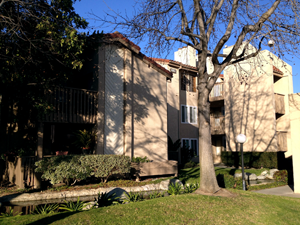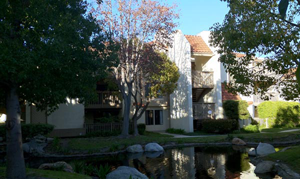| Last Update 23 October 2012 |
Page 5 of 6 |
GROUND LEASE (continue) |
- Condemnation (continue)
- Substantial Taking.
If Lessee determines the taking to be a substantial taking, Lessee shall give written notice to that effect to Lessor within sixty (60) days after Lessee receives notice of intended taking. If Lessee does not so notify Lessor. the taking shall be deemed a partial taking. If Lessee gives such notice and Lessor gives Lessee notice disputing Lessee's contention within thirty (30) days following receipt of Lessee's notice, the dispute shall be promptly determinded by arbitration. If Lessor gives no such notice, the taking shall be treated as a substantial taking. A substantial taking shall be treated as a total taking if (1) Lessee delivers possession to Lessor within thirty (30) days after the arbitrator's determination that the taking was a substantial taking, or, if the matter is not submitted to arbitration, within one-hundred-twenty (120) days after Lessee receives notice of intended taking, and (2) Lessee Is not in default under the Lease and has complied with all its provisions concerning apportionment of the award. If these conditions are not met, the taking shall be treated as a partial taking.
- Early Delivery of Possession.
Lessee may continue to occupy the Property and improvements until the condemning authority takes physical possession. However, at any time following notice of intended total taking, or within the time limit specified tor delivering possession In the provision on substantial taking, Lessee may elect to deliver possession of the Property to Lessor before the actual taking. The election shall be made by notice declaring the election and convenanting to pay all rents required under this Lease to the date of taking. Lessee's right to apportionment of or compensation from the award shall then accrue as of the date that Lessee goes out of possession.
- Apportionment, Distribution of Award for Total Taking.
In the event the Property, or any part thereof, is condemned, Lessor shall be entitled to and shall receive that portion of any award made with respect to the Property, and Lessee shall be entitled to that portion of any such award which is attributable to the value of the improvements which have been constructed or installed on the Property by Lessee, if any, which are condemned as part of the real property. In no event shall the amount payable to Lessee exceed the appraisal of the condemning authority or judgment, if any, with respect to the amount of any such award allocable to such improvements, and in no event shall said amount be less than the amount of any indebtedness secured by a lender's first deed of trust. In the absence of such appraisal or agreement between Lessor and Lessee as to such amounts, each shall appoint an appraiser and the two shall select a third appraiser and all three shall appraise the Property. The average of the three appraisals shall constitute the value of Lessee's improvements.
- Partial Taking.
- Effect on Rant, Terms.
On a partial taking, this Lease shall remain in full force and effect covering the portion of the Property not taken, except that the net rent shall be reduced in the same ratio as the percentage of the area of the ground taken bears to total area of the Property.
- Restoration of Improvements.
Promptly after partial taking, at Lessee's expense and in the manner specified in the provisions of this Lease relating to maintenance, repairs and alterations, Lessee shall repair, alter, modify or reconstruct the improvements so as to make them an operable whole. Lessee shall further have the right to claim and recover from the condemning authority such compensation as may be separately recoverable by Lessee in Lessee's own right for any damages to the Lessee's operations on the Property or for any cost or loss to Lessee in altering any improvements thereon or in removing and relocating Lessee's equipment and fixtures therefrom by reason of such taking.
- Default Remedies
- Default by Lessee.
Each of the following events shall be a default by Lessee and a breach of this Lease:
- Failure to Perform Lease Covenants.
Abandonment or surrender of the premises or of the leasehold estate, or the failure or refusal to pay when due any installment of rent, or any other sum required by this Lease to be paid by Lessee, or to perform any other covenant or condition of this Lease.
- Attachment or Other Levies.
The subjection of any right or interest of Lessee to attachment, execution, or other levy, or to seizure under legal process If not released within thirty (30) days, provided that the foreclosure of any mortgage permitted by provisions of this Lease shall not be construed as a default within the meaning of this Paragraph.
- Appointment of Receiver.
The appointment of a receiver to take possession of the Property or Improvements or of Lessee's Interest in the Leasehold estate or of Lessee's operations on the Property or for any reason, including receivership (a) pursuant to administration of the estate of any deceased or incompetent lessee or of any deceased or incompetent individual member of any lessee or (b) pursuant to any mortgage permitted by provisions of this Lease relating to purchase or construction of improvements or (c) instituted by Lessor, the event of default being not the appointment of a receiver at Lessor's instance but the event justifying the receivership, if any.
- Insolvency, Bankruptcy.
An assignment by Lessee tor the benefit of creditors-or the filing of a voluntary or involuntary petition by or against Lessee under any law for the purpose of adjudicating Lessee a bankrupt; or for extending time for payment, adjustment or satisfaction of Lessee's liabilities or for reorganization, dissolution, or arrangement on account of or to prevent bankruptcy or Insolvency; unless the assignment or proceeding, and all consequent orders, adjudications, custodies and supervisions are dismissed, vacated or otherwise permanently stayed or terminated within ninety (90) days after the assignment, filing or other initial event.
- Notice of Default (to Lessee, Mortgagee and Sublessees).
As a precondition to pursuing any remedy for an alleged default by Lessee, Lessor shall, before pursuing any remedy, give notice of default to Lessee and to all qualifying sublessees and mortgagees whose names and addresses were previously given to Lessor In a notice or notices from Lessee or any qualifying mortgagee stating that the notice was for the purpose of notice under this provision. A qualifying sublessee is a sublessee in possession under an existing sublease permitted under this Lease. A qualifying mortgagee is a mortgagee under a mortgage then existing permitted under the provisions of this Lease. Each notice of default shall specify In detail the alleged event of default and the intended remedy.
- Lessee's Right to Cure Default.
If the alleged default is non-payment of rent, taxes or other sums to be paid by Lessee as provided In the Paragraph on rent, or elsewhere in this Lease directed to be paid as rent, Lessee shall have ten (10) days after notice is given to cure the default. For the cure of any other default, Lessee shall promptly and diligently after the notice commence curing the default and shall have thirty (30) days after notice is given to complete the cure, plus any additional period that is reasonably required for the curing of the default.
- Lessor's Remedies.
If any default by Lessee shall continue uncured following notice of default as required by this Lease for the period applicable to the default under the applicable provision of this Lease, Lessor has the following remedies in addition to all other rights and remedies provided by law or equity, to which Lessor may resort cumulatively or in the alternative:
- Termination
Lessor may, at Lessor's election, terminate this Lease by giving Lessee.notice of termination. On the giving of the notice, all Lessee's rights in the Property and in all improvements shall terminate. Promptly after notice of termination, Lessee shall surrender and vacate the Property and all improvements in broom clean condition and Lessor may reenter and take possession of the Property and all remaining improvements and eject all parties in possession or eject some and not others, or eject none, provided that no qualifying sublessee shall be ejected. Termination under this Paragraph shall not relieve Lessee from the payment of any sum then due to Lessor or from any claim of damages previously accrued or then accruing against Lessee.
- Re-entry without Termination.
Lessor may, at Lessor's election, reenter the Property and, without terminating this Lease, at any time and from time to time, relet the Property and improvements and any part or parts of them for the account and in the name of the Lessee or otherwise. Lessor may, at Lessor's election, eject all persons or eject some and not others or eject none, provided that no qualifying sublessee shall be ejected. Lessor shall apply all rent from reletting as in the provision on assignment of sub-rents. Any reletting may be for the remainder of the term or for a longer or shorter period. Lessor shall be entitled to all rents from the use, operation or occupancy of the Property or improvements or both. Lessee shall nevertheless pay to Lessor. on the due date specified in this Lease the equivalent of all sums required of Lessee under this Lease plus Lessor's expenses reasonably incurred in the reletting, less the avails of any reletting or attornment. No act by or on behalf of Lessor under this provision shall constitute a termination of this Lease unless Lessor gives Lessee notice of termination.
- Lessee's Personal Property
Lessor may, at Lessor's election, use Lessee's personal property and trade fixtures, or any of such property or fixtures without compensation and without liability for use or damage or store them for the account and at the cost of Lessee. The election of one remedy for any one item shall not foreclose an election of any other remedy for another item or for the same item at a later time.
- Monetary Remedy.
- Recovery of Rent.
Lessor shall be entitled at Lessor's election to each installment of rent or to any combination of Installments, for any period before termination, plus interest at the rate of eight percent (8%) per year from the due date of each installment. Avails of relettlng or attorned sub-rents shall be applied when received as follows: (1) to Lessor, to the extent that the avails for the period covered do not exceed the amount due from and charge to Lessee for the same period and (2) the balance to Lessee.
Even though Lessee has breached this Lease and abandoned the Property, Lessor may elect to continue this Lease in effect for so long as Lessor does not terminate Lessee's right to possession, and Lessor may enforce all Lessor's rights and remedies under this Lease, including the right to recover the rent as it becomes due, pursuant to Section 1951.4 of the California Civil Code or any similar statute hereafter enacted.
|
|


